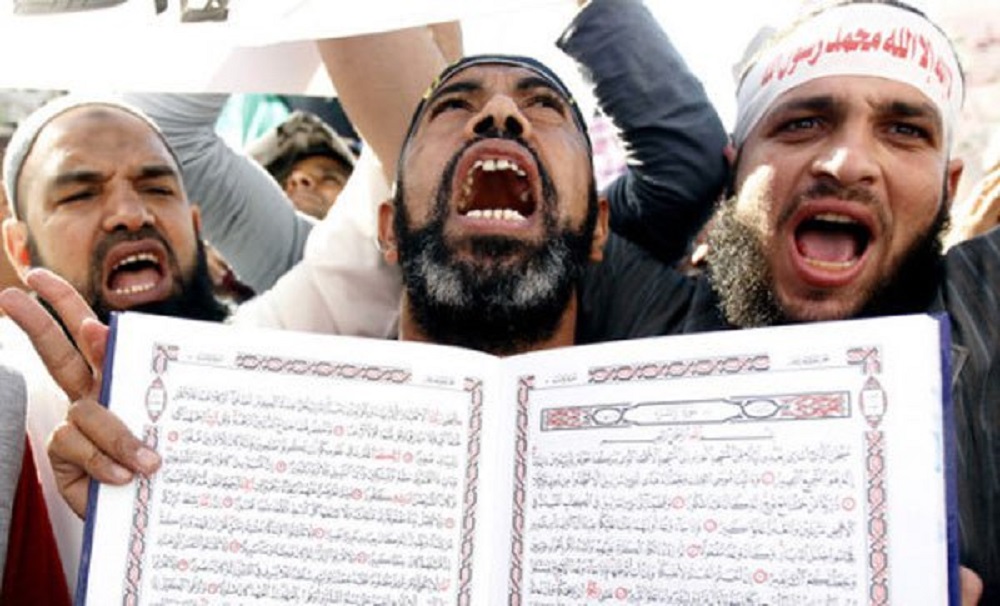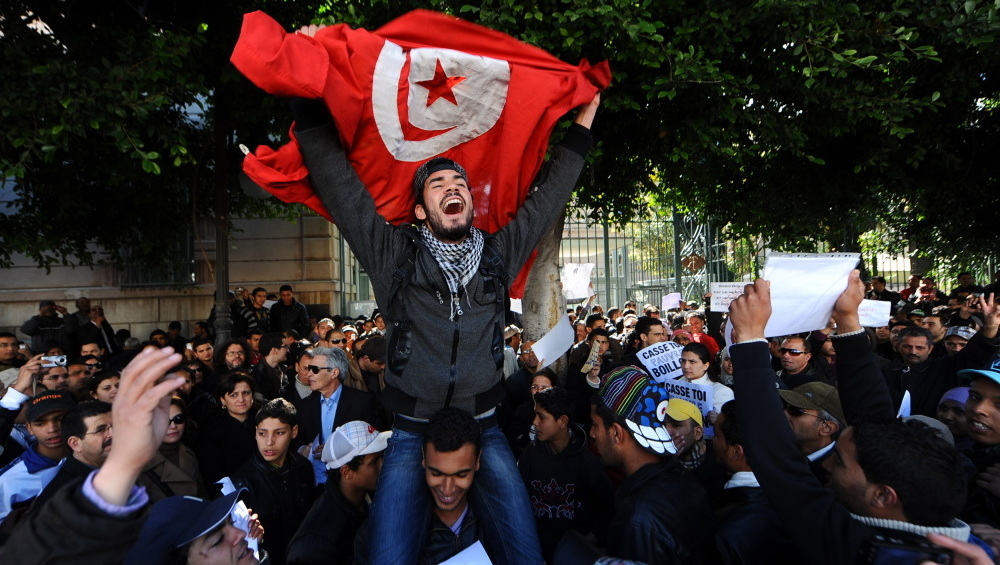On Barren Ground
Palestinian elections notwithstanding, it is important for Western leaders to consider whether a democratic Palestinian society can be harvested from ground that has been sown (for over a decade) with hatred, prejudice, murder and the belief that the promise of the afterlife holds greater fortune than any earthly treasure? Is it conceivable that a society bent on the destruction of a neighboring state both for religious and political reasons can somehow search its inner soul and find the foundation for a new tomorrow?
The creation of a democratic Palestinian state depends not only upon an established set of rules enacted by duly elected representatives, but on intangible and complex bonds of individual responsibility and trust. While there has been a considerable amount of debate in recent years about nation building, the truth is that democracies are not exactly things that you just “build.” Like liberty, democracy cannot be laid down like Astroturf. It doesn’t come in a kit that can be unloaded and assembled overnight. It is not a commodity that the US can export or donate. Rather, democracies are about consensual government, an independent judiciary, obedience to the rule of law, a free press and minority rights, and they require a very different set of beliefs from those required for survival under tyrants, dictators and despots.
–break–
Democracy is also more than just voting and elections (despite what you may hear). The existence of these processes (or even any subsequent constitution produced as a result of them) do not ipso facto mean that a cultural shift has suddenly occurred in the Palestinian mindset. Remember that the constitution of the former Soviet Union was among the most democratic ever written, but that did not stop the purges, the NKVD assassinations, the Doctors’ Plot, the banishments to Siberia or the slaughter of millions of Russians by a paranoid megalomaniac.
In real life (as opposed to textbooks on civics), democracy is something of an acquired taste that the Palestinians (at least to date) have shown little if any inclination to acquire. We, in the West, understand the difference between anarchy and democracy only because we have had the experience of both at various points in our history. The Palestinians, however, have not, so don’t expect some miraculous birth of freedom and liberty after the January election.
Palestinian society has produced a political, religious, educational, and popular culture that promotes hatred of Israelis and Jews and teaches that violence is the preferred means of achieving political goals. It has produced a culture that is virulently anti-Semitic, anti-American and anti-Western; that is unrelenting in its efforts to destroy Israel, that engulfs its population with distorted media coverage, and that has indoctrinated a significant portion of its society into believing that murdering Jews is an act of faith condoned by Allah. Without doubt, the Palestinians face enormous obstacles in achieving anything resembling parliamentary government for at least a generation.
To have any real hope of working, Palestinian democracy must evolve from within its own culture and that will not be a simple thing. For the West, it took eight hundred years of feudalism, the Renaissance, a series of religious wars, and an Industrial Revolution to establish what we call “Democracy.” It didn’t just “happen.”
Part of their problem is that they lack a Washington, a Madison or a Marshall as a guide. That is, they lack a universally revered democratic hero as a role model. They lack a consensus builder who understands that democratic society is comprised of many self-activating, autonomous groups and associations; one who can convince others that common ground must be found for the common good of the people; and they lack a genius of constitutional law who can so persuasively interpret a constitution that the prestige of his court (and of law itself) ensures national compliance.
Which leads to the role of religion in Palestinian politics. Like Christianity, Islam is a universal faith that envisions the ultimate transformation of the world in its image. But unlike Christianity in our time, Islam has yet to consider the option of religious pluralism based on the equality of all faiths. Thus, in traditional Islamic theology, the very existence of a Jewish (infidel) state in Muslim lands is offensive. That is why the hatred of Hamas (Sunni Islam) and Palestinian Islamic Jihad (Shi’a Islam) for Israel does not refer to Israeli policies as much as to Israel’s existence as a democratic island in an Islamic sea; as a usurper of lands previously controlled by Islam. Democracy cannot exist in an environment without true political parties, but Islam condemns the dividing of the Muslim ummah (community) into such parties and groups. The Islamic elements within the Palestinian population cannot compel religious obedience through murder and continue to seek an Islamic state while expecting the world to believe that these same elements can establish a new democratic tradition. Unless the Islamic elements in Palestinian political culture are resolved, a democratic Palestine will remain a pipe dream.
To expect Mahmoud Abbas to ask George W. Bush for a copy of the “Federalist Papers” any time soon may be setting the bar a tad high. Yet, setting the bar any lower in a society that is inherently unstable and quite possibly borderline pathological will almost certainly result in a replay of Algeria in the early 90s when Islamic fundamentalists were poised to win Algeria’s first democratic election and would have, had the CIA not intervened. Had Algerian “democracy” unfolded as was expected, the result would have been a disaster – “one man, one vote, one time” as a veteran American diplomat once quipped………something for the diplomats at Foggy Bottom and in the White House to consider as they extol the virtues of “Palestinian democracy in action” in January. Unfortunately, both the Bush and Blair administrations seem to be banking a great deal of their political and financial capital on the results of the election when they should be more than a little apprehensive.
Having said that, what realistic benchmarks for success can be set? In Palestinian society, true democracy will come only with the recognition of the existence of the State of Israel; with an end to religious and political terrorism; when Palestinians detoxify their society with messages that actively promote peace and economic progress; when they can freely question the reasons for the failure of their government to raise the living standards of its citizens; when their elected leadership explains how Yasser Arafat was allowed to steal his people’s future, indoctrinate and sacrifice their children and betray their goals; when Palestinians are free to discuss the benefits of economic liberalization, privatization and development; when they recognize the vast anomalies that exist within their society and demand radical change; when they institute broad educational reforms and raise their literacy standards; when they are prepared to systematically eradicate government corruption; when they eliminate the culture of martyrdom as expressed through their posters, their videos and their TV programs as well as from their schools, mosques, stores, marketplaces and editorials; and when they can discuss issues relating to open access to information, communications, professional organizations, trade unions, fair laws and the judiciary without fear of being executed by Palestinian death squads.
In the meantime, neither the Bush nor the Blair administrations do Israel (or their own countries) any service by suggesting that the death of Yasser Arafat has somehow changed or diminished this medieval mindset. Abu Mazen has already made it clear (in Arabic) that he is not opposed to the use of violence per se, except when violence interferes with the strategy of forcing Israel to create a Palestinian state and Fatah chief Farouk Khadoumi added that “[There are] 300 million Arabs, while Israel has only the sea behind it.”
The Palestinians will have to fundamentally change their world-view not because it is politically ineffective but because it is morally wrong. As Itamar Marcus of Palestine Media Watch wrote recently: “The day we start seeing educational and religious messages promoting peace on Palestinian Authority TV is the day we’ll know a peace process has begun.” Until that day, when President Bush stated: “I am convinced that, during this term, I will manage to bring peace,” I cannot help but wonder what the steady stream of would-be Palestinian “martyrs” were thinking as he spoke.


